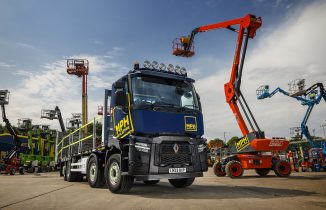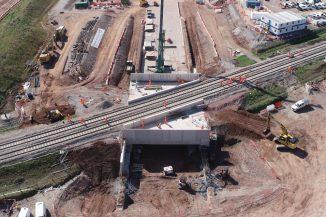Sponsored:

Mark Worrall, CEO of construction sector business improvement specialists BBI Services, outlines the fundamental role of a leader within the built environment.
Being a leader in the construction industry comes with a great deal of responsibility. Whether that’s at project, programme, business unit or organisation level, leaders are working with multi-million-pound budgets, hundreds of thousands of employees and often rigid timeframes. Ultimately, they are accountable for the success and positive outcomes of the programme.
Combine this with the ongoing challenges impacting the sector like climate crisis, building safety, a disruptive supply chain, skills shortages and transformation of the industry, it’s clear a certain set of skills are required to be a successful built environment leader. These leaders can inspire and influence real change within an organisation, a joint venture, alliance or new project.
Research from the CIOB found that construction companies are struggling to develop and upskill the industry’s leaders, with many businesses failing to have a comprehensive leadership succession plan and strategy in place1.
The question is, despite these challenges, what can leaders do to ensure they achieve success and inspire their teams across their organisation?
Develop and inspire a shared vision
As one of the most important roles in a construction project, joint venture or organisation, leaders have a huge influence on the behaviours of the whole team.
Leaders are responsible for creating the conditions for success and setting the standard for the entire organisation which includes establishing a clear vision, mission and set of values.
The real key is turning a shared vision into a strategic plan that creates a sense of meaning and purpose for everyone at all levels. This will help to win the hearts and minds of the leaders and their teams to feel empowered to shape the way forward toward a common goal.
By developing a strong culture, where everyone feels empowered to improve, leaders will foster a more cohesive and collaborative approach across the whole organisation. While designing a concrete set of strategies and principles, that an entire workforce has contributed to and can buy into, will drive a business towards sustainable success.
Model the way
A truly effective leader will engage the entire workforce and align them with the big picture. This requires modelling how what it means to each team member, at their level, how they can contribute and what support they need to deliver it. Within this process, employees should be encouraged, supported and empowered to share their views.
By following this approach, leaders will be better able to engage with their teams at times when they need to challenge the existing ways of working or if they must discuss important changes like the future vision for the organisation.
This is also incredibly important when it comes to escalating issues. Traditionally, when problems are highlighted, very little action is taken to resolve them, even though the team knows what’s preventing them from working as effectively as they could be.
Challenge the status quo
A great leader will challenge the status quo and encourage their teams to do the same within a safe collaborative environment. They will harness the talent and experiences of the team to identify the best way to break a problem down, identify the root causes and develop robust countermeasures to prevent them from reoccurring.
So, challenge is important, however, so is celebrating every success, whether large or small. Delivering incremental and transformational change across an organisation is no easy feat but, if done correctly, is a great motivator for employees and can maximise excellence and efficiency across the business.
Invest to upskill and grow capability
Above all else, leaders must also remember to invest in everyone’s personal development, especially their own.
At BBI Services, we have developed our own innovative leadership series designed to embed sustainable behaviour change within a construction business.
Our leadership programmes are a great, practical way to equip senior leaders and executives with the skills to deliver a transformational shift across an organisation.
By using a unique cohesive approach, we will work with leaders and senior executives to capitalise on their strengths and enhance their development areas, as well as inspire and share a strategic vision to create the conditions for sustained success.
Through supported and coached enhancement plans, we can help to tease out the best of any organisation’s existing talent pools to get real and lasting results.
To find out more about how you can make a real difference in how your business and team operate visit: www.bbiservices.com





